|
The Internet is a powerful resource. It provides us instant
access to information, and brings us together via email,
bulletin boards, chat rooms, and instant messaging. FAOL
is a wonderful example of the Internet at its best. The Internet,
however, will never replace the printed page.
I've loved books and fishing since my youngest years, although
I did not start fly fishing until 1993. This column will give
me an opportunity to share reviews of some of my favorite fly
fishing and tying books (and some that are not such favorites)
with my friends here at FAOL. My library reflects my tastes
and interests, and so will this column. It will be heavily
slanted towards cold water fishing and tying for trout and
steelhead, and won't touch much on areas of which I know little,
such as warm or salt water fishing.
I hope that these reviews will motivate some of you to pick up
a good book, on this or any subject, and read.
~ Stu Farnham
Soft Hackles in America: three books by Sylvester Nemes
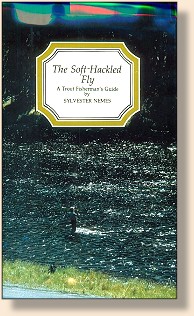 The Soft Hackled Fly
The Soft Hackled Fly
128 pages
Stackpole Books
Reprint edition (September 1993)
ISBN: 0811716708
The Soft Hackled Fly Addict
125 pages
Stackpole Books
Reprint edition (September 1993)
ISBN: 0811716716
Soft Hackled Fly Imitations
113 pages
Published by the author; (1991)
Soft hackled flies have great appeal to fly tier, fly fisherman,
and trout. The flies are simple to tie and elegant in their
appearance, and do not require exotic materials. They are
simple and versatile to fish, and will catch trout when
fished as emergers, cripples, or searching nymphs or wet
flies.
Soft hackles are well established in the history of fly fishing
in the U.K. References are found in Dame Julia Berner's a
treatyse of fysshyng with an angle (1496). Perhaps the
definitive works are Edmonds' and Lee's 1916 Brook and River
Trouting and, perhaps best known to modern anglers, Pritt's
North Country Flies (1886), and W.C. Stewart's
The Practical Angler (1857).
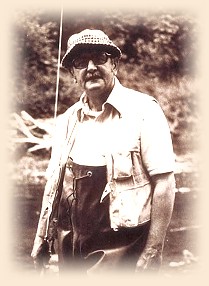 Bozeman, MT, resident Syl Nemes is largely responsible for the
popularization of this sparsely dressed style of fly in North
America via his three books on the subject: The Soft Hackled
Fly (1971), The Soft Hackled Fly Addict (1981),
and Soft Hackled Fly Imitations (1991). The former
two are available in reprint editions from Stackpole books.
Bozeman, MT, resident Syl Nemes is largely responsible for the
popularization of this sparsely dressed style of fly in North
America via his three books on the subject: The Soft Hackled
Fly (1971), The Soft Hackled Fly Addict (1981),
and Soft Hackled Fly Imitations (1991). The former
two are available in reprint editions from Stackpole books.
The first book provides a history of the soft hackled fly and
of the author's adoption of the style. The historical view
traces soft hackles from Berner through the fly fishing
literature of both the UK, even placing these flies in
the context of the relatively modern work of Halford and
Skues. Nemes also ferrets out the few references in the
North American fly fishing canon in Schweibert's Nymphs
and Leisenring's/Hidy's The Art of Tying the Wet Fly
and Fishing the Flymph.
The patterns and methods described in this volume are traditional
in nature. Among the patterns are the familiar Partridge & Green,
Partridge & Yellow, and Snipe & Purple. Methods are limited to
the across-and-down swing.
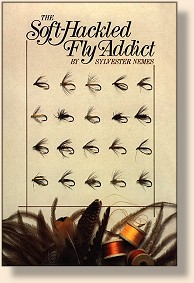
The Soft Hackled Fly Addict explores the works of
Pritt and Edmonds & Lee in depth. All 11 color plates are
reproduced from Pritt. Nemes also goes into considerable
detail about his own methods for tying and fishing soft
hackles, with information on line control, upstream
presentations, and more. Another six patterns are added
to the 14 presented in The Soft Hackled Fly.
A set of pen and ink drawings in 'addict' augment the black
and white photographs and tying instructions found in the
first volume.
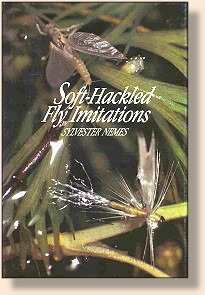 It is too bad that (to the best of my knowledge) no one has
issued a reprint of Soft Hackled Fly Imitations.
In this, the third and final volume, Nemes' thinking is at
its most evolved and original. He goes beyond the traditional
attractor patterns described in his first two books to bring
soft hackles in line with contemporary hatch matching,
presenting modern patterns and methods adapted to specific
hatches including the grannom, baetis, pale morning dun,
and others. Syl's Mother's Day Caddis soft hackle in a
personal favorite of mine for the grannom hatches which
follow the March Brown's on Oregon's McKenzie River. I
reach for his Syl's Midge in the winter months when the
Crooked River is dotted with rise forms but no hatch
is apparent.
It is too bad that (to the best of my knowledge) no one has
issued a reprint of Soft Hackled Fly Imitations.
In this, the third and final volume, Nemes' thinking is at
its most evolved and original. He goes beyond the traditional
attractor patterns described in his first two books to bring
soft hackles in line with contemporary hatch matching,
presenting modern patterns and methods adapted to specific
hatches including the grannom, baetis, pale morning dun,
and others. Syl's Mother's Day Caddis soft hackle in a
personal favorite of mine for the grannom hatches which
follow the March Brown's on Oregon's McKenzie River. I
reach for his Syl's Midge in the winter months when the
Crooked River is dotted with rise forms but no hatch
is apparent.
These are wonderful books, steeped in the history of our
sport and building into the present on the historical foundation.
They are of equal value to the fly fisher, the fly tier, and
the historian. Armed with a good grounding in these traditions,
the modern fly tier can add their own variations of this simple
but effective style of fly. ~ Stu Farnham
About Stu
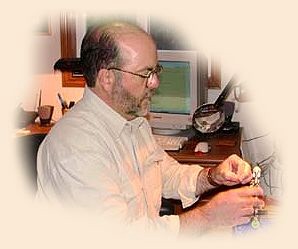 Stu Farnham is a New Englander by birth, who was transplanted to
and put down roots in Oregon in the early 1990s. A software
engineering manager by vocation, he can be found in his spare
time chasing trout and steelhead in the rivers of the Pacific
Northwest, chasing his four Gordon Setters (who in turn are
chasing chukar), tying flies, reading, or working on his website.
Colleen, his long suffering wife of 28 years, is a professionally
trained personal chef.
Stu Farnham is a New Englander by birth, who was transplanted to
and put down roots in Oregon in the early 1990s. A software
engineering manager by vocation, he can be found in his spare
time chasing trout and steelhead in the rivers of the Pacific
Northwest, chasing his four Gordon Setters (who in turn are
chasing chukar), tying flies, reading, or working on his website.
Colleen, his long suffering wife of 28 years, is a professionally
trained personal chef.
|
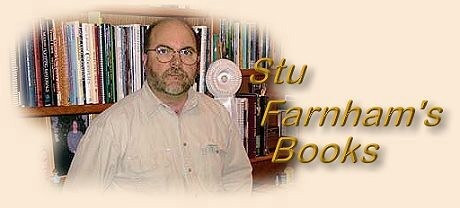
 The Soft Hackled Fly
The Soft Hackled Fly Stu Farnham is a New Englander by birth, who was transplanted to
and put down roots in Oregon in the early 1990s. A software
engineering manager by vocation, he can be found in his spare
time chasing trout and steelhead in the rivers of the Pacific
Northwest, chasing his four Gordon Setters (who in turn are
chasing chukar), tying flies, reading, or working on his website.
Colleen, his long suffering wife of 28 years, is a professionally
trained personal chef.
Stu Farnham is a New Englander by birth, who was transplanted to
and put down roots in Oregon in the early 1990s. A software
engineering manager by vocation, he can be found in his spare
time chasing trout and steelhead in the rivers of the Pacific
Northwest, chasing his four Gordon Setters (who in turn are
chasing chukar), tying flies, reading, or working on his website.
Colleen, his long suffering wife of 28 years, is a professionally
trained personal chef.
 Bozeman, MT, resident Syl Nemes is largely responsible for the
popularization of this sparsely dressed style of fly in North
America via his three books on the subject: The Soft Hackled
Fly (1971), The Soft Hackled Fly Addict (1981),
and Soft Hackled Fly Imitations (1991). The former
two are available in reprint editions from Stackpole books.
Bozeman, MT, resident Syl Nemes is largely responsible for the
popularization of this sparsely dressed style of fly in North
America via his three books on the subject: The Soft Hackled
Fly (1971), The Soft Hackled Fly Addict (1981),
and Soft Hackled Fly Imitations (1991). The former
two are available in reprint editions from Stackpole books.
 It is too bad that (to the best of my knowledge) no one has
issued a reprint of Soft Hackled Fly Imitations.
In this, the third and final volume, Nemes' thinking is at
its most evolved and original. He goes beyond the traditional
attractor patterns described in his first two books to bring
soft hackles in line with contemporary hatch matching,
presenting modern patterns and methods adapted to specific
hatches including the grannom, baetis, pale morning dun,
and others. Syl's Mother's Day Caddis soft hackle in a
personal favorite of mine for the grannom hatches which
follow the March Brown's on Oregon's McKenzie River. I
reach for his Syl's Midge in the winter months when the
Crooked River is dotted with rise forms but no hatch
is apparent.
It is too bad that (to the best of my knowledge) no one has
issued a reprint of Soft Hackled Fly Imitations.
In this, the third and final volume, Nemes' thinking is at
its most evolved and original. He goes beyond the traditional
attractor patterns described in his first two books to bring
soft hackles in line with contemporary hatch matching,
presenting modern patterns and methods adapted to specific
hatches including the grannom, baetis, pale morning dun,
and others. Syl's Mother's Day Caddis soft hackle in a
personal favorite of mine for the grannom hatches which
follow the March Brown's on Oregon's McKenzie River. I
reach for his Syl's Midge in the winter months when the
Crooked River is dotted with rise forms but no hatch
is apparent.